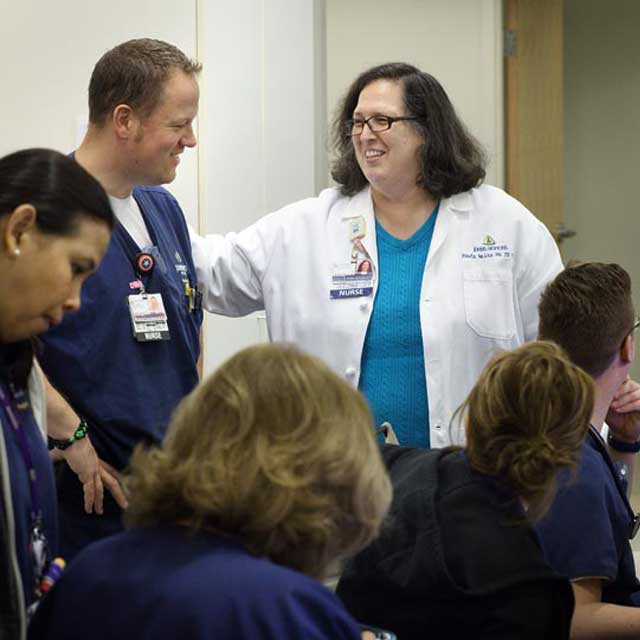Being transgender means facing significant health care disparities, says Paula Neira, nurse educator in the Department of Emergency Medicine.
Transgender people have a gender identity different from the one assigned at birth. They often face discrimination and violence, Neira says, which increase their risk for suicidal thoughts, substance abuse and mental health issues.
Health care providers may be hampered by their own discomfort and lack of knowledge, Neira told an audience of about 120 on July 19, in the Richard A. Grossi Auditorium at Johns Hopkins Bayview Medical Center.
In studies, up to 71 percent of transgender people reported discrimination in medical settings, and 50 percent said they had to educate clinicians about transgender care, she said during the second annual LGBT Pride Lecture, sponsored by the LGBT Allies Employee Interest Group and the Johns Hopkins Bayview Diversity Council.
Neira graduated from the U.S. Naval Academy and served in Operation Desert Storm before leaving the Navy and accepting her own female gender identity. Now a nurse, lawyer and nationally recognized advocate on transgender military service, she was recently honored by the nonprofit OutServe-Servicemembers Legal Defense Network for her work ensuring equal treatment for military members who are lesbian, gay, bisexual and transgender.
Neira urged clinicians to call patients by the name or pronoun they prefer and counseled against asking which bathroom they use, how they have sex and when they “chose” to be transgender. “Being transgender is not a choice,” she said. “I challenge all of you to tell me the date and time you chose your gender identity.”
Each transition is different and involves complex medical, legal and social decisions, Neira said. Not all transgender people opt for gender-confirming surgery, for example. “The standard of care is patient-centered,” she said. “What is most appropriate for each patient involves a conversation between the patient and provider.”
More Than Medicine | Paula Neira
Paula Neira, nurse educator, lawyer and former naval officer, knows how to get things done. She is a passionate advocate in the mission to help care providers better meet the health care needs of today’s lesbian, gay, bisexual and transgender patients.


